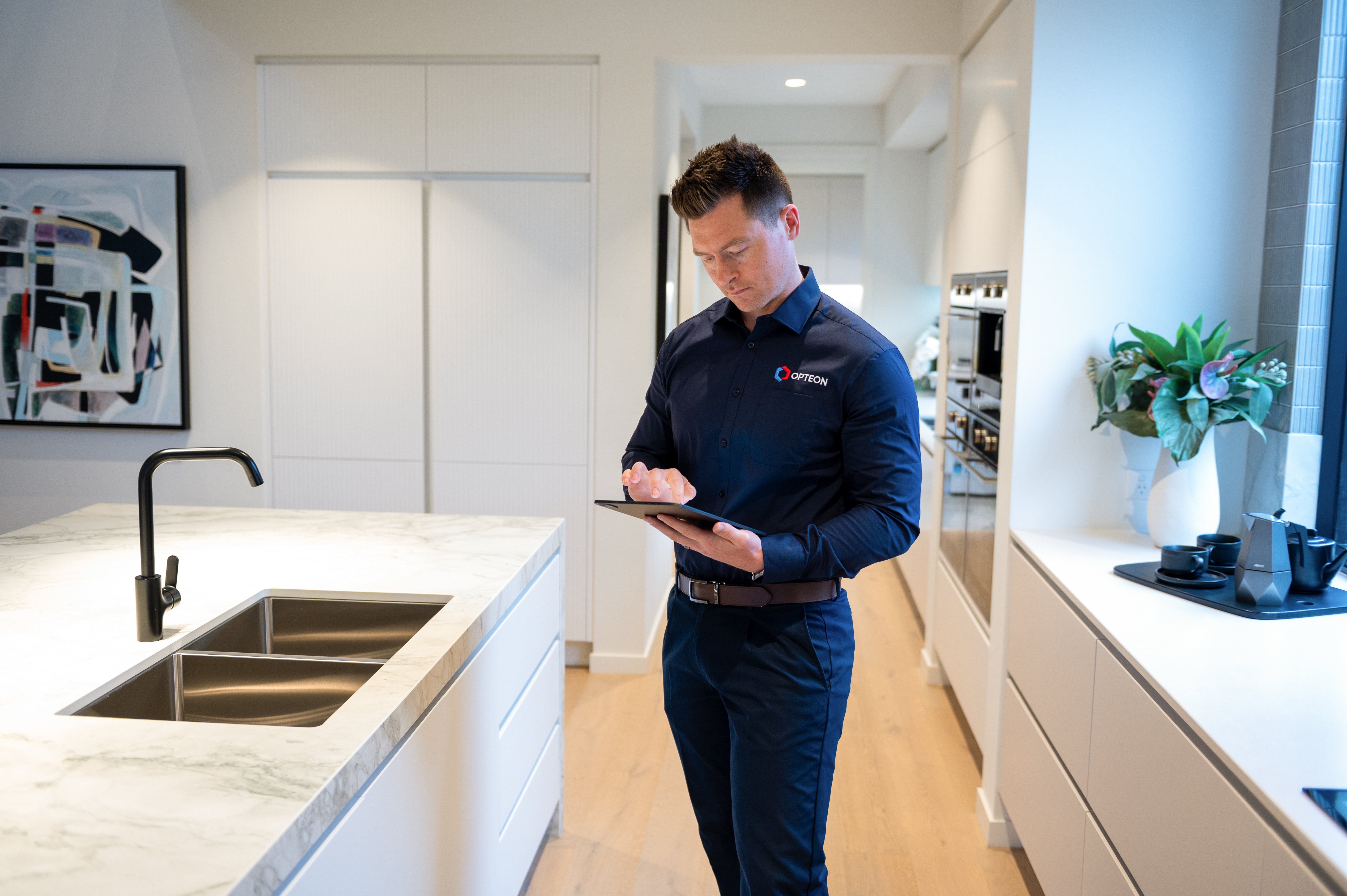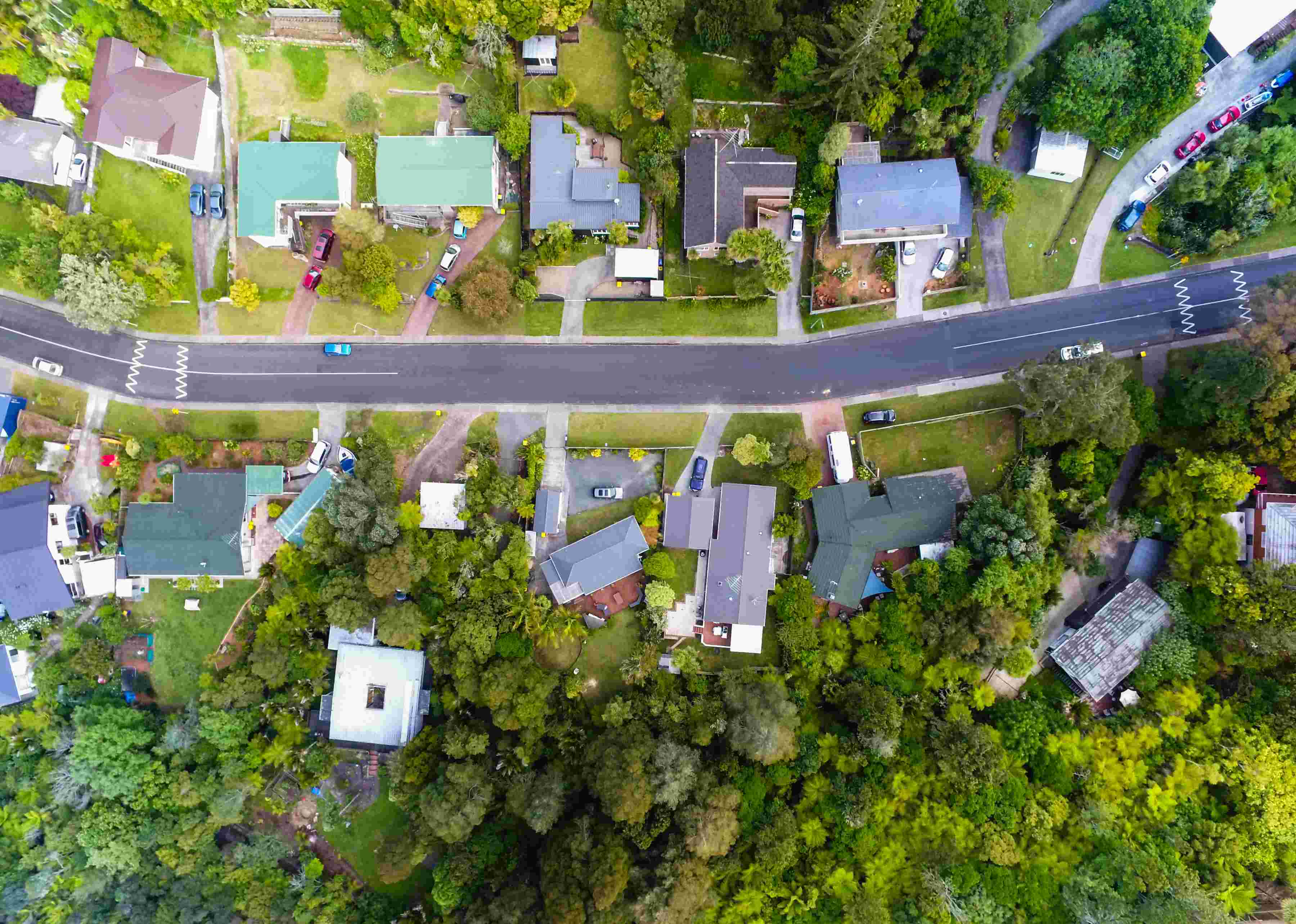What Valuers Are Really Looking at in 2025
Blog

Author: Matthew Jobson, Queensland State Director
Matt is a highly experienced property valuer with over 12 years in the residential sector. He has held senior leadership roles across the industry and brings deep insight into prestige residential valuations. Known for his strategic thinking and sector knowledge, Matt is a respected figure in the valuation profession.
In today’s fast-paced property market, residential valuations are more important, and more nuanced, than ever. Whether you’re buying, selling, refinancing, or preparing for tax time, understanding what property valuers look at in 2025 can give you a real advantage. We spoke with Opteon QLD State Director, Matthew Jobson, to find out.
Why valuations matter in 2025
With national property prices rising steadily (up 8.3% year-on-year to May 2025, according to CoreLogic) homeowners and buyers alike are turning to valuations to inform their financial decisions.
But a valuation isn’t a guess, a feeling, or what your neighbour’s place sold for. It’s a regulated process conducted by qualified professionals. And in 2025, valuers are paying close attention to a few key factors.
1. Location is still king, but not just postcodeValuers assess not only your suburb, but also micro-location factors like:
-
Proximity to transport, schools, shops, and employment hubs
-
Zoning and planning overlays (e.g. flood risk, heritage controls)
-
Street appeal and neighbourhood consistency
-
Local supply and demand dynamics
“We’re seeing more weight placed on walkability, access to public transport, and even broadband connectivity.” says Matthew Jobson, Queensland State Director of Residential Valuations at Opteon.
2. Property condition and presentation
In 2025, buyers are prioritising turnkey properties, and valuers take this into account. They look at:
-
Structural soundness (roof, walls, foundations)
-
Interior condition: floors, paintwork, fittings
-
Kitchen and bathroom modernity
-
Maintenance: is it cared for or neglected?
Importantly, valuers don’t assess taste, but rather marketable condition. A fresh coat of paint or minor cosmetic touch-up won’t add huge dollars, but it can help position your home closer to the upper end of comparable sales.
3. Size, layout, and land useIt’s not just square metreage. Valuers assess how usable the space is. In particular:
-
Land size and shape (usable yard space is a plus)
-
Number of bedrooms and bathrooms
-
Floorplan efficiency and flow
-
Potential for future development (STCA)
A four-bedroom home with an awkward layout may be valued lower than a well-designed three-bedder with outdoor living space.
4. Sustainable features are gaining groundIn 2025, sustainability matters more than ever, especially with government incentives and rising energy costs. Features that can influence a valuation include:
-
Solar panels and batteries
-
Double glazing and insulation
-
Water-saving devices and rainwater tanks
-
Passive design elements
“While not all buyers will pay a premium, sustainable homes often sell faster and appeal to younger, future-focused demographics,” says Jobson.
5. Comparable sales, but with a twistValuers use recent comparable sales as a foundation, but in a fluctuating market, they're trained to:
-
Adjust for timing (e.g. a boom 3 months ago vs. today)
-
Factor in off-market or distressed sales
-
Consider buyer behaviour trends (e.g. more investors vs. owner-occupiers)
They also critically assess whether a sale was truly comparable…was it renovated? On a busy road? Was it a forced sale?
6. External risk factorsIn 2025, valuers are also incorporating broader risk assessments that could affect future resale value:
-
Climate risk (coastal erosion, flood zones, bushfire overlays)
-
Insurance availability and affordability
-
Government infrastructure plans (e.g. new roads, schools)
-
Rental caps or short-stay restrictions in some areas
These may not impact current value dramatically, but they do affect long-term desirability, especially for investment properties.
What doesn’t affect value (as much as you think)
Valuers don’t give extra weight to:
-
Emotional attachment
-
Overcapitalised renovations (e.g. stone benchtops in a modest suburb)
-
Unique features that appeal to niche buyers only (e.g. themed rooms, wine cellars in family homes)
-
Online estimates or automated valuation models (these are guides, not legally defensible values)
Tips to help your valuation go smoothly
Want to make sure your property is fairly assessed?
-
Clean and tidy: Presentation doesn’t add value, but it helps the valuer focus on what matters.
-
Provide documents: Renovation history, approvals, recent sales nearby.
-
Be available: Offer context, but don’t oversell. It’s about facts, not feelings.
Valuation is a data-driven, human process
At its core, a valuation in 2025 is a mix of professional judgment, market analysis, and on-the-ground insight. It’s not about chasing a number: it’s about getting a clear, independent view of your property’s worth in today’s climate.
Need a valuation?
Get in touch with our experienced residential team at Opteon for an accurate, independent assessment tailored to your needs.
Matthew Jobson
Queensland State Director
matthew.jobson@opteonsolutions.com
Subscribe to Receive the Latest Property Insights!
DISCLAIMER
This article is produced by Opteon Property Group Pty Ltd. It is intended to provide general information in summary form on valuation related topics, current at the time of first publication. The contents do not constitute advice and should not be relied upon as such. Formal advice should be sought in particular matters. Opteon’s valuers are qualified, experienced and certified to provide market value valuations of your property. Opteon does not provide accounting, specialist tax or financial advice.
Liability limited by a scheme approved under Professional Standards




.png)


.png)

